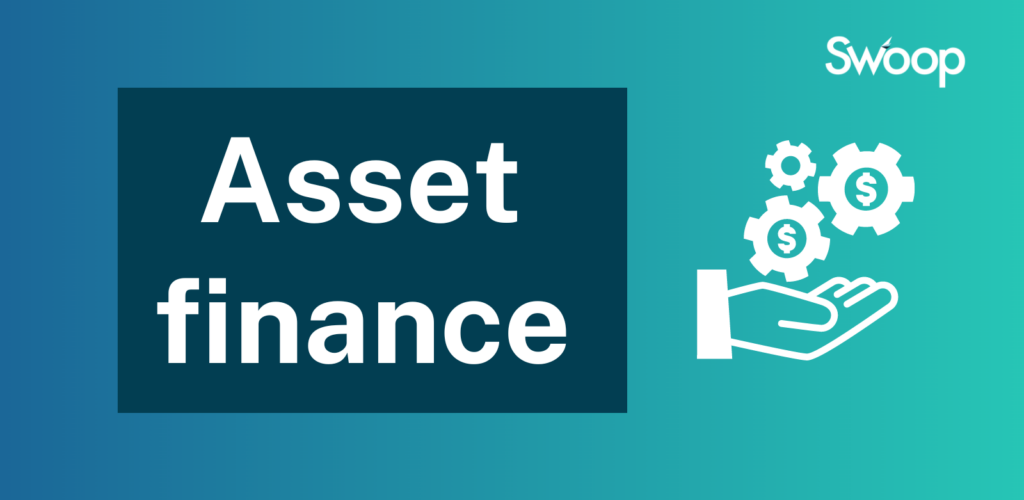Why do you need to know about asset finance in 2023

If your business needs funding, asset finance may not be your immediate first thought. But with the market changing in 2023, it could solve your funding problems.
Asset finance? Too complicated. Doesn’t it mean spending more on renting something when you could just buy it? And what happens if you are still paying for something after it’s no longer needed?
If you’ve dismissed the idea of asset finance – or never even thought about it in the first place – there are many reasons why you should take a look at it as an approach to funding what your business needs to grow.
Andrea Reynolds, CEO and Founder at Swoop says that asset finance can be used to manage money across your whole business in a more efficient way:
“With asset finance, you can leverage the value of assets such as vehicles, buildings and equipment instead of paying one large sum upfront. This allows you to spread the cost over time with smaller, regular payments. Alternatively, asset finance may release the cash value of an asset you already own. Here, you transfer the asset as collateral to a lender, who then provides a loan based on the asset’s value.”
Rhys Cunnah, Head of Unsecured and Asset Finance at Swoop says that SMEs have grown used to a long period of historically easy and low-cost borrowing. But, he warns, the days of cheap money are over for the foreseeable future:
“The cost of everything is going up, and that includes the cost of borrowing. Government-backed schemes such as CBILS and RLS have also created an environment where business owners are in a false sense of security about how easy it will be to borrow and what it will cost.”
Rhys warns that things have changed:
“We are in the early weeks of a recession and have seen interest rates go up. Add in the energy crisis and suddenly the threat landscape for businesses has changed drastically. Business owners are going to find that the banks have lost their appetite to lend. It’ll cost more and there may be more demand for businesses to prove they can afford the sort of unsecured loans they have come to rely on.”
How can business owners prepare for the coming year?
Andrea Reynolds says that cash is king:
“Too often we see otherwise great businesses fold, just because they hit a temporary cashflow bottleneck. One of the most important things a business owner can do is ensure that they know where they could get hold of funds if they had to – even if they don’t need them right now.”
Part of the problem is that the finance market has ballooned with innovative products from disruptive new players. Andrea says that this has led to a major knowledge gap:
“People just don’t realise what is out there. Many businesses come to Swoop after their bank has said ‘no’. They are stumped as to where they might find the funding they need. At Swoop, the bank’s ‘no’ is often where our work starts.”
Rhys says that Swoop’s great advantage is giving business owners options that they didn’t know they had:
“From merchant cash advances to revolving credit facilities, there are more ways than ever to get funding. Andrea is right: with uncertainty becoming a way of life, every business owner should have a plan in place for getting funding quickly, even if they don’t have an immediate need.”
Use the Swoop business loans tool to find out how much you can borrow here.
Is asset finance right for your business?
Rhys says that asset finance is often overlooked as a solution to businesses seeking funding. The advantages of asset finance include small, or zero upfront cost to purchase big-ticket items, supporting cashflow and releasing capital for use elsewhere in the business. Rhys adds:
“Depending on the type of asset finance you get and how you use it, the lender may be responsible for maintaining and training people to use equipment. And if something breaks down or goes wrong, the lender has to shoulder the cost of a replacement.”
There are downsides to asset finance, however. Rhys explains:
“The provider owns the asset until it is paid for in full, or, depending on the type of finance chosen, you may never own it at all. Asset finance is also a long term commitment with the minimum term usually being at least one year. You’ll also need to pay careful attention to the terms of the agreement because while there may be some maintenance that is the responsibility of the lender, you may be liable for damage to the asset that falls beyond the scope of the agreement.”
Another thing to watch out for is any limitation on use of the equipment, such as the annual mileage on a vehicle, for example. Andrea warns:
“Going beyond the limits could leave you with a large bill to pay at the end of the contract term. Make sure you know exactly what you’re covered for and what will break the agreement. The devil is in the detail.”
To find out more about Asset Finance, the different types and further considerations to help you decide whether it is right for your business, check out this article which goes into more detail here.
New year’s resolutions for 2023
Andrea says that every business owner should take a reality check of what’s going on in the world and how their business will face difficulties that we know are coming down the road:
“Cashflow is the most important consideration for any business. Asset finance is a really useful tool for business owners to help protect their cashflow and release capital for important growth spending. Protect what you have, ensure you are using your money as efficiently as possible and know what you would do if the worst should happen.”
Rhys says that Swoop is a crucial partner for any business that seeks to take full advantage of all the funding solutions in the marketplace:
“Lots of business owners are intimidated by the sheer range of options out there. Asset finance is one of those things that is often overlooked, but it may be exactly what a business needs at this time. Our job at Swoop has always been about connecting businesses to the funding they need and helping owners navigate the funding marketplace with the confidence of an expert.”
To talk to a Funding Manager about asset finance, arrange an appointment here.


